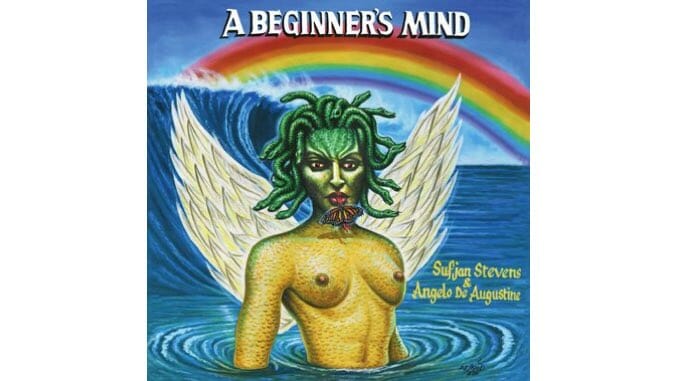Sufjan Stevens & Angelo De Augustine Find Abundant Beauty in Movies on A Beginner’s Mind
The duo's movie marathon-inspired collaboration is more than the sum of its parts

Like a teacher’s pet eager to please, Sufjan Stevens certainly enjoys having an assignment attached to his art. For a while there, the lines were certainly blurred on whether the guy was releasing actual albums or installments. Earlier in his career he teased fans, and maybe more so the music press, with his audacious plan to write and record 50 albums, one for each U.S. state. The grandiose promise was never kept, of course, as he was only able to tackle two—his 2003 debut Michigan and his 2005 breakthrough Illinois—before his attention veered elsewhere.
Throughout Stevens’ extended break from his affair with regional history through song, his sheer ambition as an artist has never wavered. He’s maintained a relatively prolific streak while taking attentive notes, with prime examples being his detours into a complete album of Christmas music, and his soundtracking work for the films The BQE and, more notably, Call My By Your Name. But with his brand new collaborative album A Beginners’ Mind, with fellow Asthmatic Kitty recording artist Angelo De Augustine, the parameters of the project seem less rigid in execution than they have been in the past.
-

-

-

-

-

-

-

-

-

-

-

-

-

-

-

-

-

-

-

-

-

-

-

-

-

-

-

-

-

-

-

-

-

-

-

-

-

-

-

-








































